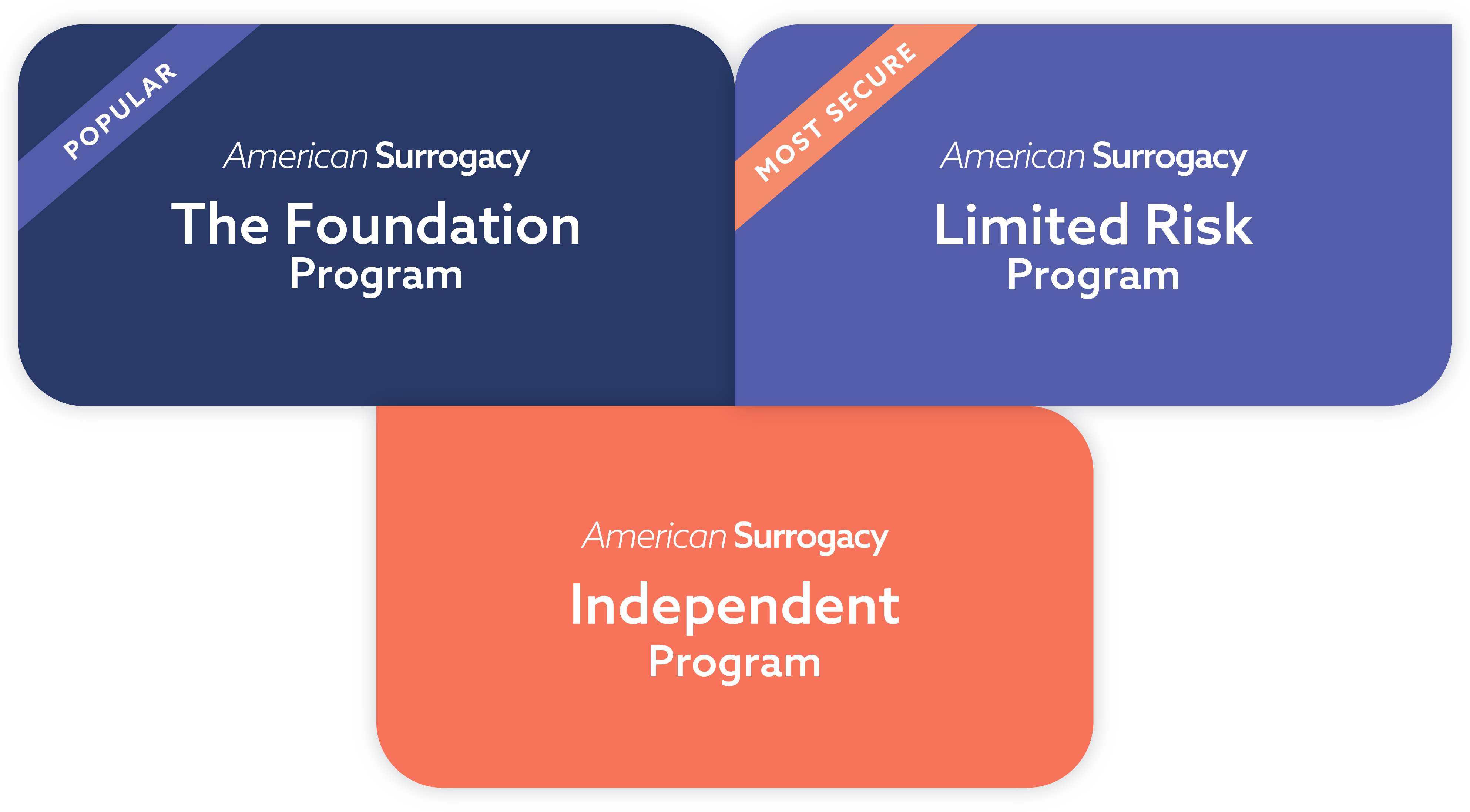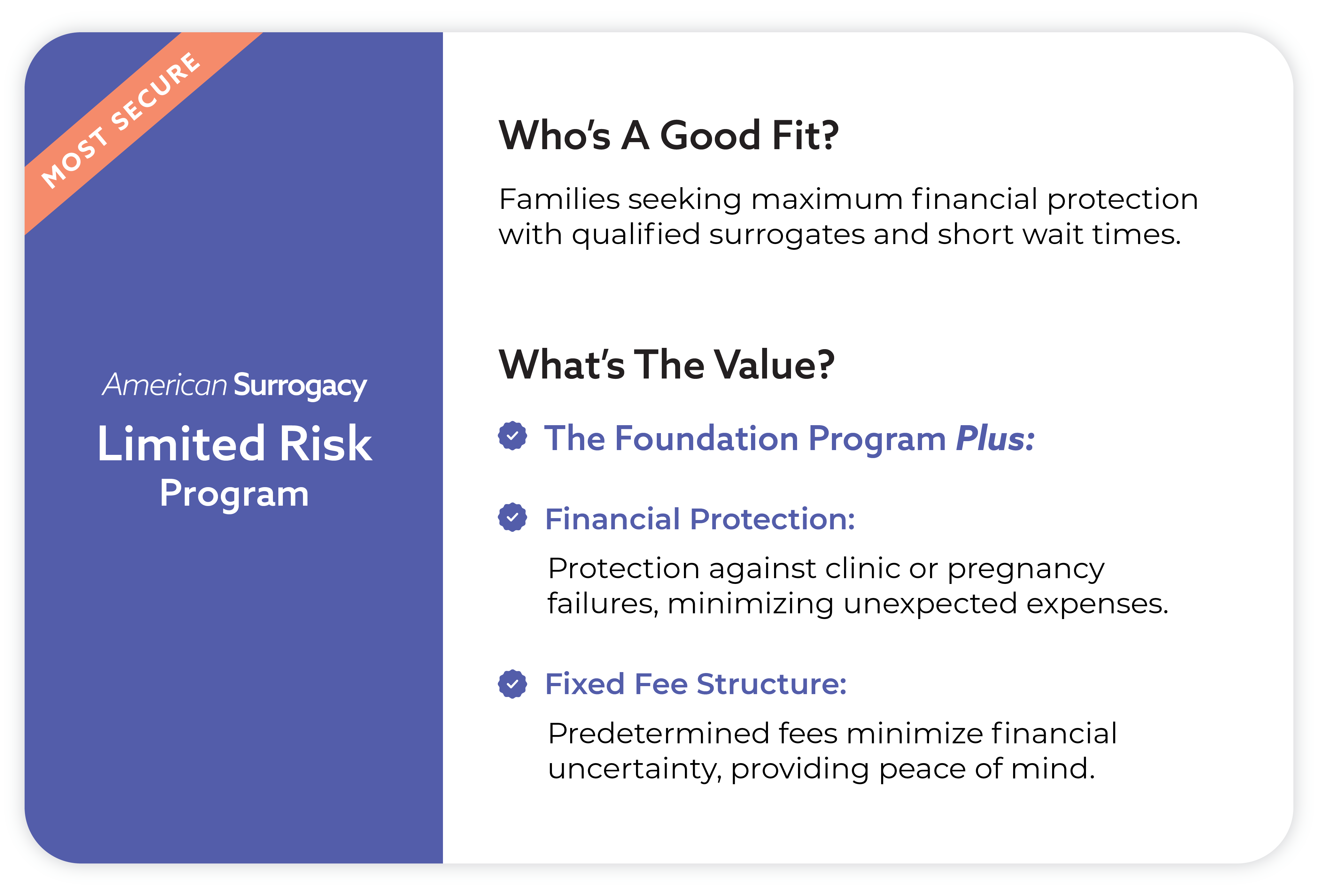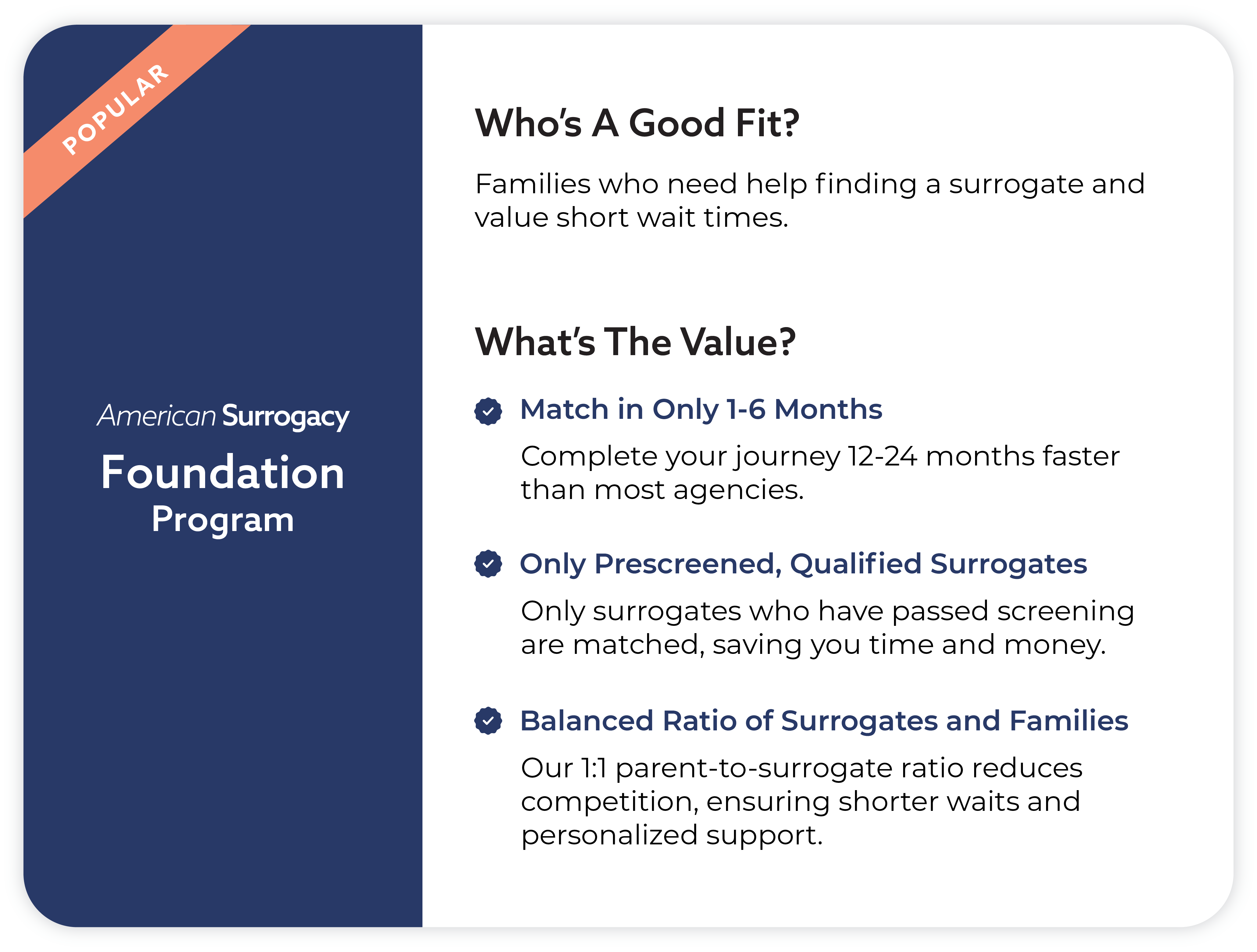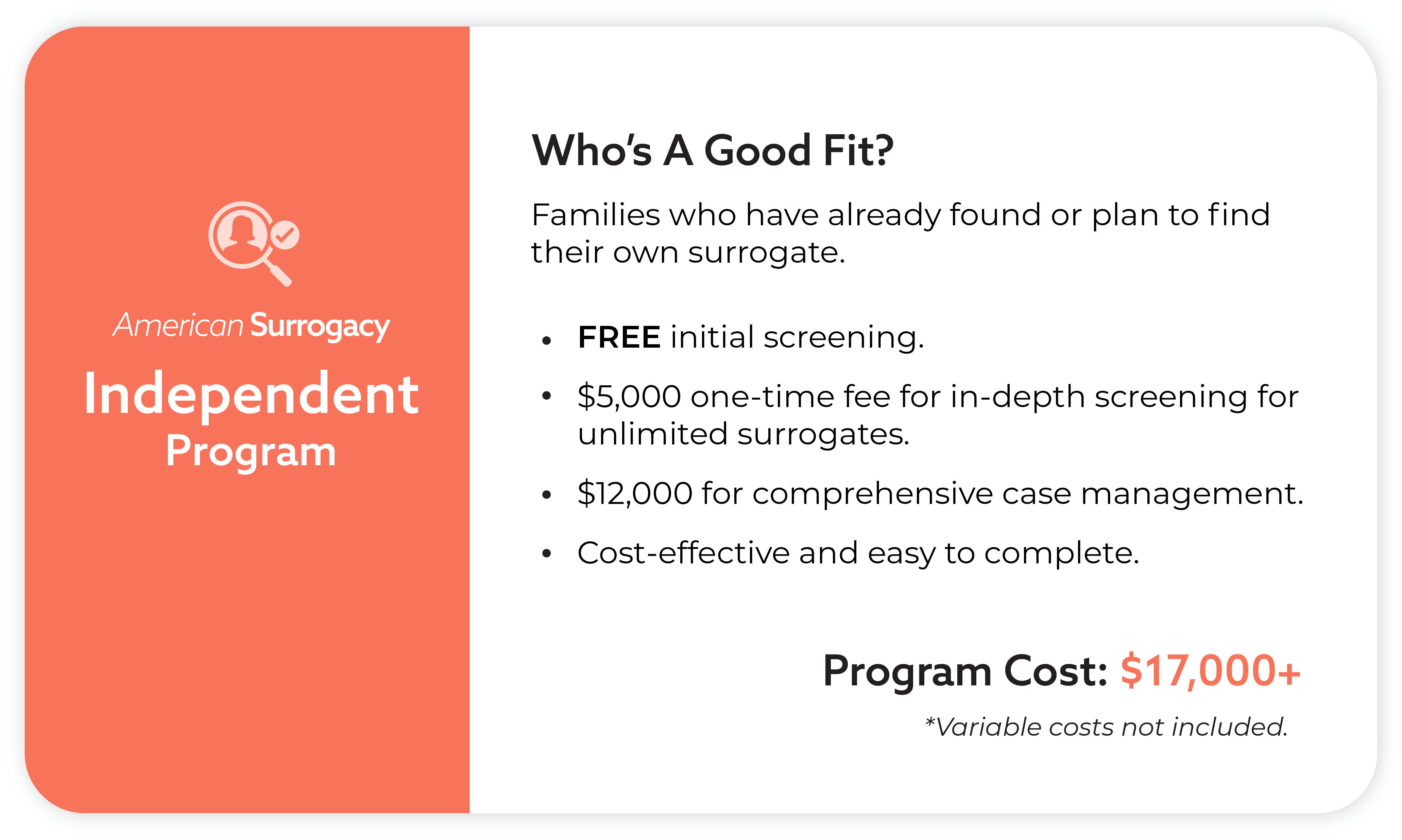Surrogacy in Utah can be legally complex—but you don’t have to navigate it alone.
With expert support from American Surrogacy, families can pursue their dreams of parenthood with clarity and confidence. Whether you're wondering about surrogacy contracts, compensation, or how state laws impact your journey, this guide offers everything you need to make informed decisions.
Surrogacy Laws in Utah
Utah permits gestational surrogacy under specific conditions outlined in the Utah Code §78B-15-801–809, which means surrogacy is legal but subject to strict requirements, including:
- Intended parents must be married and undergo a judicial approval process before embryo transfer.
- The contract must be validated by a Utah court before any medical procedures begin.
View the Utah Surrogacy Statute
Is Paid Surrogacy Legal in Utah?
Yes—but with restrictions. Utah allows compensated gestational surrogacy as long as the agreement is validated by a court before embryo transfer.
American Surrogacy matches intended parents with pre-screened surrogates in surrogacy-friendly states if Utah’s requirements don’t fit your needs.
Learn More About Surrogate Compensation
Are Surrogacy Contracts Enforceable in Utah?
Yes. Utah courts will enforce a validated gestational agreement if it complies with state requirements.
The contract must:
- Be executed by all parties before any embryo transfer.
- Be approved by a Utah court in advance.
- Clearly outline roles, responsibilities, compensation, and decision-making rights.
If you're unsure how to proceed, American Surrogacy will work with your legal team to ensure every contract meets state laws.
Surrogacy Contract Checklist
A Utah surrogacy contract should include:
Compensation for the surrogate, reimbursements and handling of unexpected costs. Who makes decisions about embryo transfers, selective reduction, pregnancy termination or cesarean delivery? Wellness expectations, travel restrictions and communication preferences. How and when the intended parents will be recognized as the child’s legal guardians. Clear methods for resolving disagreements—without jeopardizing the journey. What happens if one party needs to end the agreement early?
When Do I Need a Surrogacy Contract in Utah?
Immediately after matching with a surrogate. You cannot proceed with medical procedures until the contract is validated by the court.
Learn More About the Surrogacy Timeline
How Will American Surrogacy Support Me During the Contract Stage?
Before we even present you with a surrogate’s profile, our team checks Utah’s surrogacy requirements.
Explaining complex legal language in plain terms Assisting with contract negotiations and feedback loops Coordinating timelines between medical and legal milestones Ensuring all documentation is signed and submitted on time Connecting you with a surrogacy attorney near you How We Help You
You’ll never navigate legal hurdles alone with American Surrogacy by your side.
LGBTQ+ Surrogacy Laws in Utah
Utah law requires intended parents to be married—affecting many LGBTQ+ couples. However, with support from American Surrogacy, you can find a path forward.
Abortion Laws in Utah and Surrogacy Contracts
Utah has some of the strictest abortion regulations in the country, with a trigger law banning abortion except under limited circumstances. As of now, court challenges have delayed full enforcement.
In Utah:
- Surrogacy contracts must clarify termination rights.
- Legal limitations may override contract provisions.
If Utah’s legal climate isn’t ideal for your values, American Surrogacy can help you pursue surrogacy in a more flexible state.
Surrogacy Laws for Establishing Parentage in Utah
To establish legal parentage, Utah requires a pre-birth parentage order that is obtained through court validation of the surrogacy agreement.
- The order must be issued before embryo transfer.
- Intended parents’ names can be placed directly on the birth certificate.
How to Get a Pre-Birth Order in Utah
The process involves:
- Submitting a petition to the district court with a validated surrogacy contract.
- Judicial hearing (in some cases) to approve the order.
- Issuance of a birth certificate with the intended parents’ names after birth.
- Timing: Parentage orders must be filed before medical procedures begin, often taking 4–8 weeks.
International Surrogacy Laws in Utah
Utah has no specific laws addressing international surrogacy arrangements. However, international intended parents must meet U.S. immigration and Utah residency/legal status requirements to pursue a validated surrogacy agreement.
The Role of a Surrogacy Attorney in Utah
A surrogacy attorney ensures:
- Contracts are state-compliant
- Judicial approval is obtained
- Parentage is legally established
We can connect you with an experienced Utah surrogacy attorney.
How Much Does a Surrogacy Lawyer Cost?
Legal fees in Utah range from $5,000 to $10,000, depending on the attorney and complexity.
- Intended parents cover legal fees for themselves and the surrogate.
- With American Surrogacy, legal fees are included in our all-inclusive program.
Find a Surrogacy Attorney Near Me
Salt Lake City, UT
Lauren Barros is a seasoned attorney with extensive experience in assisted reproduction law, serving intended parents, surrogates, and donors across Utah. As a Fellow of the American Academy of Adoption and Assisted Reproduction Attorneys (AAAA), she is nationally recognized for her expertise in family formation law. She is also a founder of the Rainbow Law Clinic, supporting LGBTQ+ families in navigating ART and family-building challenges.
Murray, UT
Damian Davenport is an ART attorney focused exclusively on assisted reproductive technology law since 2005. His firm, Davenport Law PC, provides legal services for surrogacy arrangements, egg and sperm donation, and embryo donation, working with both domestic and international clients. He is a Fellow of the Academy of Adoption and Assisted Reproductive Technology Attorneys (AAAA) and a member of ASRM’s Legal Professionals Group.
Explore Our Surrogacy Programs in Utah

American Surrogacy offers three proven pathways to parenthood:
Limited Risk Program

Foundation Program

Independent Program

FAQ: Legal Aspects of Surrogacy in Utah
Are insurance companies required to cover IVF in Utah?
No, Utah does not mandate insurance coverage for IVF.
States that do include: Illinois, New Jersey, Massachusetts, and others.
Is an embryo considered a person in Utah?
There are no laws in Utah that explicitly define embryos as persons. However, recent abortion legislation may affect interpretation.
Is traditional surrogacy legal in Utah?
Utah has no laws on traditional surrogacy, which means that it may be possible for some families, but most professionals recommend gestational surrogacy.
Do sperm and egg donors have parental rights?
No. Under Utah law, donors relinquish parental rights when proper legal procedures are followed.
Is there an IVF Tax Credit?
No, Utah does not currently offer an IVF tax credit.
You Don’t Have to Navigate Utah Surrogacy Law Alone
With American Surrogacy, you get:
- A legally safe surrogacy journey
- Expert legal guidance
- Emotional and logistical support from start to finish
This article is not intended to be and should not be taken as legal advice. Surrogacy laws in Utah are always subject to change, and American Surrogacy makes no guarantee the information presented herein is accurate. Please contact a local Utah surrogacy attorney for legal guidance on the current state of surrogacy in Utah.